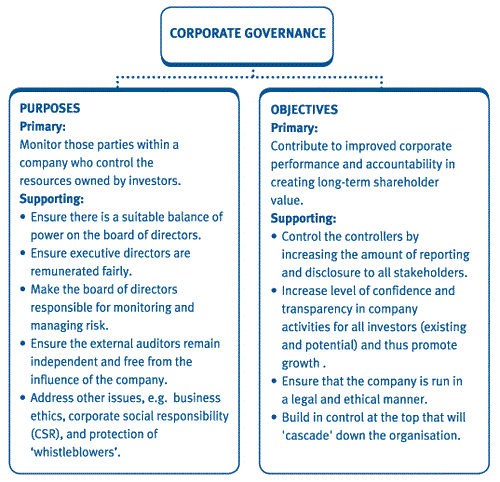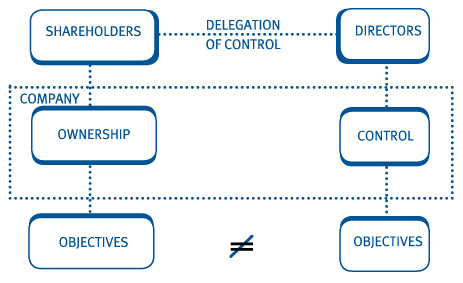Corporate Governance and Risk
Icebreaker
- Introduction
- Short survey
https://openbusinessschool.qualtrics.com/jfe/form/SV_bs8QbvyzAqKtx9b
Module Learning Outcomes
- Demonstrate detailed knowledge of the theories associated with relevant international global corporate governance with an emphasis on the UK and Europe.
- Evaluate the outcomes that distinguish between ethical and compliance driver behaviour and apply the Code of Ethics and Professional Conduct of individuals.
- Discuss the role of regulatory requirements for significant influence functions and the importance of implementing governance and procedures.
- Evaluate the impact of corporate governance, financial regulation and public policy on the broader economy.
- Assess the use of principle-based and outcome-based regulations to promote ethical and fair outcomes.
- Identify the market environment and how regulations impact corporate governance.
Assessments
You will have to complete the following 2 assignments: •
1.Assignment 1: This will be a 20-minute group presentation task. You will be placed into groups by your tutor.
2.Assignment 2: You will have to submit a 2,000-word report individually.


Session Outcomes
After this session, you should be able to:
•Examine the structure and topics covered in this module.
•Understand the Corporate Governance Code.
Key topics
We will cover the following topics during this module:
- Corporate Governance Code
- Corporate structure, Corporate governance principles.
- Business boards and roles.
- Agency costs and theories
- EU directives
- Governance history
- Principles vs rules based approach
- Impact of governance and the wider economy
- Corporate governance failure
- The basic purpose of corporate governance is to monitor those parties within a company which control the resources owned by investors.
- The primary objective of sound corporate governance is to contribute to improved corporate performance and accountability in creating long-term shareholder value.

Role of Financial Regulation
•Financial regulation governs one of the most important systems in an economy- the financial system.
•The primary purpose is to improve the functioning of the financial system. The objective is for markets to function better than they would do without financial regulation.
- Figure 1:
- the Financial Policy Committee (FPC) is a macro-prudential regulator within the Bank of England. This Committee will monitor and respond to systemic risks.
- the Prudential Regulation Authority (PRA) is a micro-prudential regulator for systemic firms, created as a subsidiary of the Bank of England.
- the Financial Conduct Authority (FCA) is an independent conduct of business regulator which will ensure that business is conducted in such a way that advances the interests of all users and participants of the UK financial sector.

Read more
1.Protection of investors
•Protecting users of the financial system is another important goal of regulation and governance.
•One of the main investor protection regulations is the US Securities Act 1993, which was introduced to protect investors from fraud and malpractice linked to issuing shares and trading.
•Investor protection is part of European regulations.
•Disclosures have been introduced investors so that they are able to assess clearly the risks they are taking on.
Read more
https://www.fscs.org.uk/what-we-cover/investments/
https://www.fca.org.uk/news/speeches/investor-protection-uk-new-tools-new-challenges
https://www.esma.europa.eu/regulation/mifid-ii-and-investor-protection
2. Financial stability
- The previous financial crisis has shown the importance of regulation, which aims to provide stability to the financial system.
- The failure of one company can have a ‘domino effect’ on the entire financial sector and economy as a whole.
- The nature of the losses firms can suffer could advance do much beyond the point of no return and may only survive if the central government takes over and injects cash into the business.
3. Competition
•Financial regulation is also concerned with promoting competition.
•There are regulatory bodies to prevent unfair competition or from large firms monopolising a sector.
•There are regulations to encourage more anti- competitive acts between brokers, dealers and exchange.
•Fair competition makes it easier for new entrants and new markets to be formed.
Read more
https://www.fca.org.uk/about/promoting-competition
Competition issues in the Area of Financial Technology (FinTech)
4. Preventing financial crime
•Financial crime might be understood as any criminal act associated with the financial system.
•Preventing crime is not an independent goal of corporate governance ; rather, it is simply an instrument for achieving the regulatory goals that criminals sanctions support.
•This includes preventing:
-Financing criminal and terrorist organisations
-Money Laundering
-Payments associated with illegals trades
-Bribery and corruption
5. Other goals of regulation
•Provide transparency and full disclosure.
•Accountability- corporate governance structure encourages accountability of the management to the company directors and the accountability of the directors to the shareholders.
•Increasing Shareholder Wealth- the main objective of corporate governance is to protect the long-term interests of the shareholders
Governance and ethics
•Many of the biggest corporate governance failures in the past have been in the most advanced countries.
•Defrauding shareholders has been a key reason for corporate governance failures in advanced economies.
•Corporate governance encourages ethics to encourage managers of firms to think about the shared values of stakeholders.
Examples:
1. ‘The Enron of Germany’: Wirecard scandal casts a shadow on corporate governance
The Munich-based payments processor filed for insolvency on Thursday, reportedly owing creditors 3.5 billion euros ($3.9 billion). The company’s collapse follows a series of investigative reports from the Financial Times into claims about accounting irregularities.
The revelation last week that 1.9 billion euros had disappeared from Wirecard’s balance sheet has seen the firm’s share price collapse 98% and former CEO Markus Braun arrested on suspicion of falsifying accounts.
The Wirecard saga and its broader implications raises many questions, with some experts describing the scandal as the “Enron of Germany.”
2. Tesco Accounting Scandal in 2014
Watchdog closes five-year probe into Tesco’s £250m accounting scandal
The Financial Reporting Council, which keeps an eye on the auditors who sign off companies’ books, opened up a probe into a number of employees of Britain’s biggest supermarket in December 2014 after allegations that profits had been overstated by £250m. That figure was later increased to £326m.
Tesco will now finally be able to draw a line under the accusations of false accounting that rocked the stock market in 2014 and saw £2bn wiped of Tesco’s value.
Following a £6.4bn loss that year – one of the biggest in UK corporate history – the chain has since turned around its business under chief executive Dave Lewis who is set to depart in October.
Read more
Bibliography
Armour, J., Awrey, D., Enriques, L., Gordon, J., Mayer, C and Payne, J. (2016) Principles of Financial Regulation Oxford: Oxford University press
